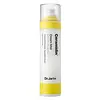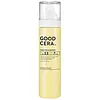What's inside
What's inside
 Key Ingredients
Key Ingredients

 Benefits
Benefits

 Concerns
Concerns

 Ingredients Side-by-side
Ingredients Side-by-side

Water
Skin ConditioningTriethylhexanoin
MaskingHydrogenated Poly(C6-14 Olefin)
EmollientMethylpropanediol
SolventDipropylene Glycol
Humectant1,2-Hexanediol
Skin ConditioningHydrogenated Lecithin
EmulsifyingButylene Glycol
HumectantTrehalose
HumectantCellulose Gum
Emulsion StabilisingEthylhexylglycerin
Skin ConditioningPolyglyceryl-10 Myristate
Skin ConditioningXylitylglucoside
HumectantElaeis Guineensis Oil
EmollientAnhydroxylitol
HumectantCitrus Aurantium Bergamia Fruit Oil
MaskingPelargonium Graveolens Flower Oil
MaskingXylitol
HumectantCeramide NP
Skin ConditioningUlmus Davidiana Root Extract
Skin ConditioningAmaranthus Caudatus Seed Extract
Skin ConditioningSucrose Distearate
EmollientGlucose
HumectantSalvia Officinalis Oil
MaskingGlyceryl Stearate
EmollientHamamelis Virginiana Extract
AntiseborrhoeicPogostemon Cablin Leaf Oil
MaskingRhodiola Sachalinensis Extract
Skin ConditioningCeramide As
Skin ConditioningCholesterol
EmollientCeramide Ns
Skin ConditioningCeramide AP
Skin ConditioningWater, Triethylhexanoin, Hydrogenated Poly(C6-14 Olefin), Methylpropanediol, Dipropylene Glycol, 1,2-Hexanediol, Hydrogenated Lecithin, Butylene Glycol, Trehalose, Cellulose Gum, Ethylhexylglycerin, Polyglyceryl-10 Myristate, Xylitylglucoside, Elaeis Guineensis Oil, Anhydroxylitol, Citrus Aurantium Bergamia Fruit Oil, Pelargonium Graveolens Flower Oil, Xylitol, Ceramide NP, Ulmus Davidiana Root Extract, Amaranthus Caudatus Seed Extract, Sucrose Distearate, Glucose, Salvia Officinalis Oil, Glyceryl Stearate, Hamamelis Virginiana Extract, Pogostemon Cablin Leaf Oil, Rhodiola Sachalinensis Extract, Ceramide As, Cholesterol, Ceramide Ns, Ceramide AP
Water
Skin ConditioningMethylpropanediol
SolventPentylene Glycol
Skin ConditioningGlycerin
HumectantDiphenyl Dimethicone
EmollientTriethylhexanoin
MaskingPolyglyceryl-10 Myristate
Skin ConditioningXanthan Gum
EmulsifyingAmaranthus Caudatus Seed Extract
Skin ConditioningUlmus Davidiana Root Extract
Skin ConditioningCentella Asiatica Extract
CleansingFicus Carica Fruit Extract
HumectantBacillus Ferment
Skin ConditioningEthylhexylglycerin
Skin ConditioningSodium Citrate
BufferingHydrogenated Lecithin
EmulsifyingCarbomer
Emulsion StabilisingCitric Acid
BufferingDisodium EDTA
Dipropylene Glycol
HumectantButylene Glycol
HumectantDecyl Glucoside
CleansingCitrus Aurantium Bergamia Fruit Oil
MaskingAlteromonas Ferment Filtrate
HumectantLavandula Angustifolia Oil
MaskingChamomilla Recutita Flower Oil
MaskingCitrus Aurantium Dulcis Oil
MaskingCymbopogon Schoenanthus Oil
MaskingPelargonium Graveolens Flower Oil
MaskingSodium Lauroyl Lactylate
EmulsifyingGlycerylamidoethyl Methacrylate/Stearyl Methacrylate Copolymer
HumectantPhytosphingosine
Skin ConditioningCholesterol
EmollientCeramide NP
Skin ConditioningCeramide AP
Skin ConditioningCeramide EOP
Skin ConditioningWater, Methylpropanediol, Pentylene Glycol, Glycerin, Diphenyl Dimethicone, Triethylhexanoin, Polyglyceryl-10 Myristate, Xanthan Gum, Amaranthus Caudatus Seed Extract, Ulmus Davidiana Root Extract, Centella Asiatica Extract, Ficus Carica Fruit Extract, Bacillus Ferment, Ethylhexylglycerin, Sodium Citrate, Hydrogenated Lecithin, Carbomer, Citric Acid, Disodium EDTA, Dipropylene Glycol, Butylene Glycol, Decyl Glucoside, Citrus Aurantium Bergamia Fruit Oil, Alteromonas Ferment Filtrate, Lavandula Angustifolia Oil, Chamomilla Recutita Flower Oil, Citrus Aurantium Dulcis Oil, Cymbopogon Schoenanthus Oil, Pelargonium Graveolens Flower Oil, Sodium Lauroyl Lactylate, Glycerylamidoethyl Methacrylate/Stearyl Methacrylate Copolymer, Phytosphingosine, Cholesterol, Ceramide NP, Ceramide AP, Ceramide EOP
 Reviews
Reviews

Ingredients Explained
These ingredients are found in both products.
Ingredients higher up in an ingredient list are typically present in a larger amount.
This ingredient comes from the seed of the velvet flower. It has skin hydrating, nourishing, and antioxidant properties.
This seed is rich in peptides, fatty acids, squalene, vitamin C, and vitamin E.
According to manufacturer, this ingredient is great for adding softness and shine to hair.
Learn more about Amaranthus Caudatus Seed ExtractButylene Glycol (or BG) is used within cosmetic products for a few different reasons:
Overall, Butylene Glycol is a safe and well-rounded ingredient that works well with other ingredients.
Though this ingredient works well with most skin types, some people with sensitive skin may experience a reaction such as allergic rashes, closed comedones, or itchiness.
Learn more about Butylene GlycolCeramide AP is formally known as Ceramide 6.
Ceramides are intercellular lipids naturally found in our skin that bonds dead skin cells together to create a barrier. Having a strong skin barrier leads to more firm and hydrated skin.
They are known for their ability to hold water and thus are a great ingredient for dry skin. By bolstering the skin ceramides act as a barrier against irritating ingredients. This can help with inflammation as well.
If you would like to eat ceramides, sweet potatoes contain a small amount.
Read more about other common types of ceramides here:
Ceramide NP
Ceramide EOP
Ceramide NP is a type of ceramide and formally known as ceramide 3.
Ceramides are intercellular lipids naturally found in our skin that bonds dead skin cells together to create a barrier. They are known for their ability to hold water and thus are a great ingredient for dry skin.
Ceramides are an important building block for our skin barrier. A stronger barrier helps the skin look more firm and hydrated. By bolstering the skin ceramides act as a barrier against irritating ingredients. This can help with inflammation as well.
If you would like to eat ceramides, sweet potatoes contain a small amount.
Read more about other common types of ceramides here:
Ceramide AP
Ceramide EOP
Cholesterol is a class of organic molecules called lipids. It helps hydrate your skin and is essential to having a healthy skin barrier.
Our skin naturally contains cholesterol in the outermost layer. Besides cholesterol, it also contains ceramides and fatty acids. Cholesterol makes up about 1/4 of your skin's outer layer and barrier. Your skin barrier is responsible for keeping allergens and microbes out. Having a healthy skin barrier is also responsible for keeping your skin firm and plump.
Our bodies use cholestrol to create vitamin D, steroid hormones, and more.
Learn more about CholesterolCitrus Aurantium Bergamia Fruit Oil is the oil from the bergamot orange. It is native to Italy.
This ingredient is used to add fragrance to products. It contains limonene, linalool, and linalyl acetate.
The term 'fragrance' is not regulated in many countries. In many cases, it is up to the brand to define this term. For instance, many brands choose to label themselves as "fragrance-free" because they are not using synthetic fragrances. However, their products may still contain ingredients such as essential oils that are considered a fragrance.
When used topically, Citrus Aurantium Bergamia Fruit Oil is a photosensitizer due to its furanocoumarins. Photosensitizers make the skin and eyes much more sensitive to sunlight. Photosensitizers are linked to skin cancer.
However, more cosmetics using Citrus Aurantium Bergamia Fruit Oil are removing the furanocoumarins.
Bergamot oil was also found to have anti-inflammatory, antibacterial and antifungal properties.
Learn more about Citrus Aurantium Bergamia Fruit OilDipropylene Glycol is a synthetically created humectant, stabilizer, and solvent.
This ingredient helps:
Dipropylene glycol is technically an alcohol, but it belongs to the glycol family (often considered part of the ‘good’ alcohols). This means it is hydrating and gentle on skin unlike drying solvent alcohols like denatured alcohol.
As a masking agent, Dipropylene Glycol can be used to cover the smell of other ingredients. However, it does not have a scent.
Studies show Dipropylene Glycol is considered safe to use in skincare.
Learn more about Dipropylene GlycolEthylhexylglycerin (we can't pronounce this either) is commonly used as a preservative and skin softener. It is derived from glyceryl.
You might see Ethylhexylglycerin often paired with other preservatives such as phenoxyethanol. Ethylhexylglycerin has been found to increase the effectiveness of these other preservatives.
Hydrogenated Lecithin is created from the hydrogenation of lecithin (a group of phospholipids). Hydrogenation is a chemical reaction between hydrogen and another element.
This ingredient is an emollient and emulsifier. As an emollient, it helps soften skin by trapping moisture within. As an emulsifier, it prevents oil and water ingredients from separating.
Methylpropanediol is a synthetic solvent and humectant.
As a solvent, it helps dissolve other ingredients, helping to evenly distribute ingredients throughout the product. This ingredient has also been shown to have antimicrobial properties which makes it a preservative booster.
Methylpropanediol is able to add a bit of moisture to the skin. It also helps other ingredients be better absorbed into the skin, such as salicylic acid.
Learn more about MethylpropanediolPelargonium Graveolens Flower Oil is the pressed oil of the Rose Geranium plant. It is volatile, meaning it evaporates off the skin.
Fragrant components of Rose Geranium include citronellol and geraniol. These may cause allergies and skin-sensitivity. We recommend speaking with a professional if you have any concerns.
The scent of Rose Geranium closely resembles traditional roses.
Learn more about Pelargonium Graveolens Flower OilPolyglyceryl-10 Myristate isn't fungal acne safe.
Triethylhexanoin is created from glycerin and 2-ethylhexanoic acid. It is a solvent and emollient.
As a solvent, Triethylhexanoin helps dissolve ingredients to stable bases or help evenly distribute ingredients throughout the product.
It is also an emollient and helps condition the skin.
Learn more about TriethylhexanoinThis tree is also known as the David Elm. It contains the ingredient bakuchiol.
Other great compounds found in this ingredient include galactose, glucose, and phenolics. The sugar content gives it great skin hydrating properties. Phenolics are potent antioxidants commonly found in fruits and veggies.
A 2020 study found the phenolics of this root to have an anti-inflammatory effect.
Fun fact: This ingredient is used in traditional Asian medicine.
Learn more about Ulmus Davidiana Root ExtractWater. It's the most common cosmetic ingredient of all. You'll usually see it at the top of ingredient lists, meaning that it makes up the largest part of the product.
So why is it so popular? Water most often acts as a solvent - this means that it helps dissolve other ingredients into the formulation.
You'll also recognize water as that liquid we all need to stay alive. If you see this, drink a glass of water. Stay hydrated!
Learn more about Water